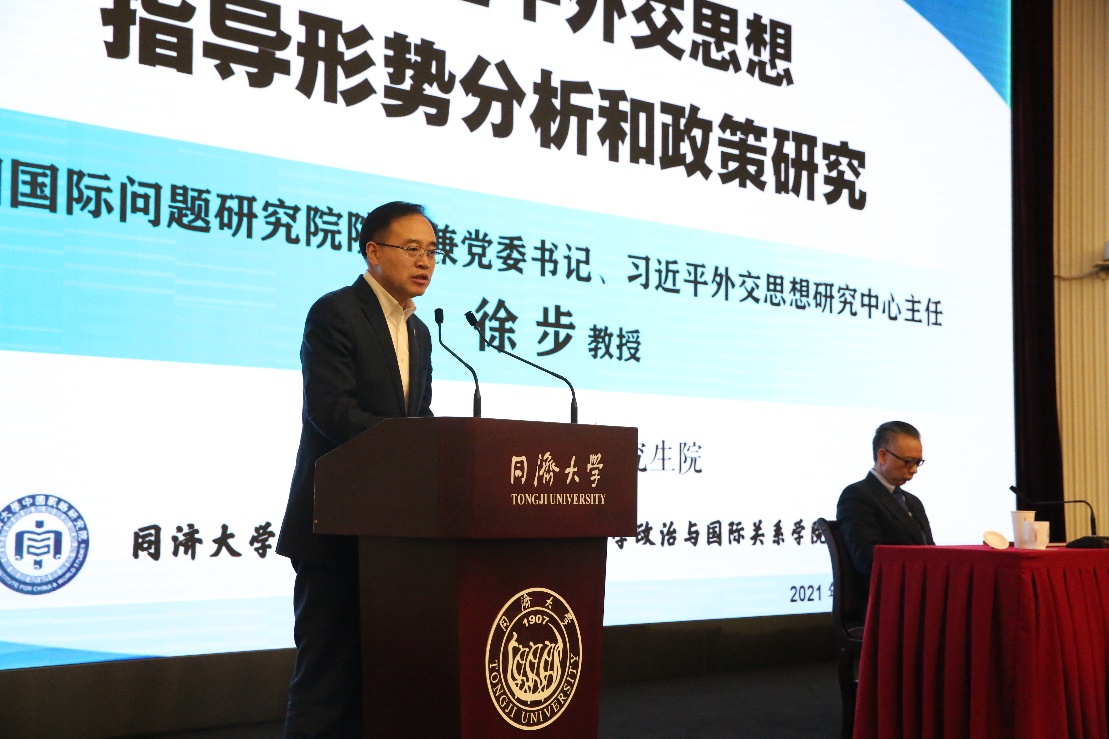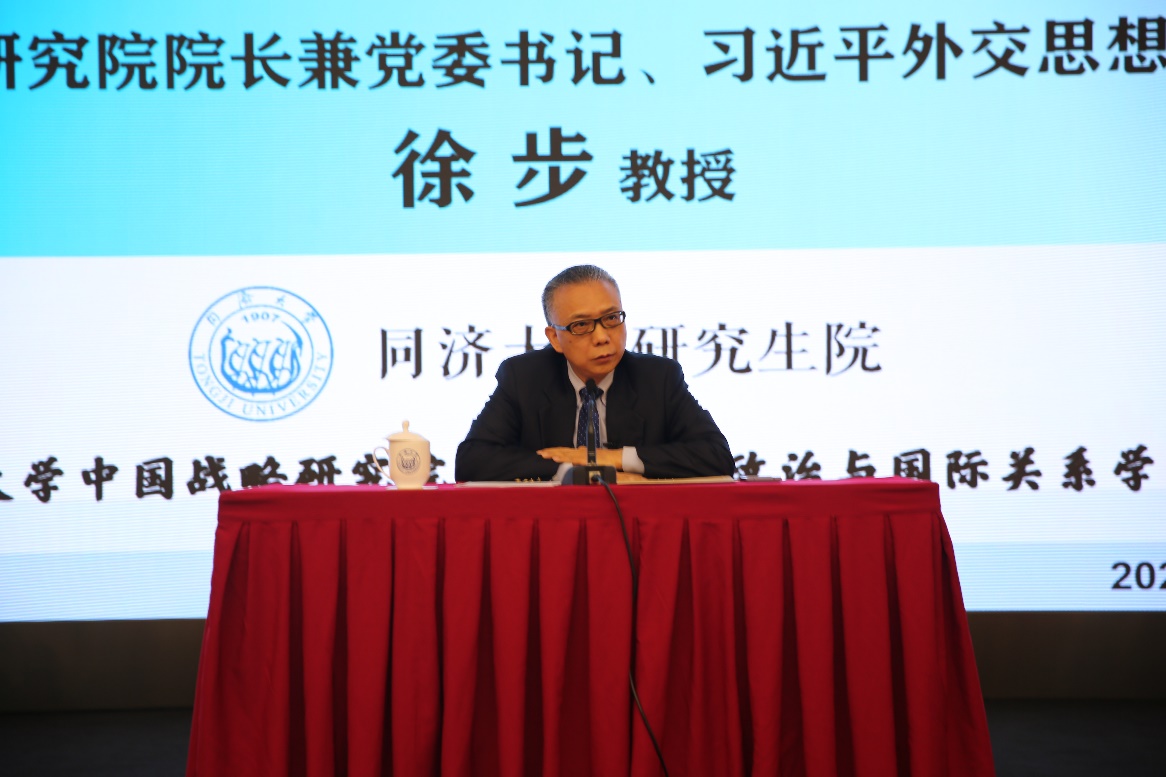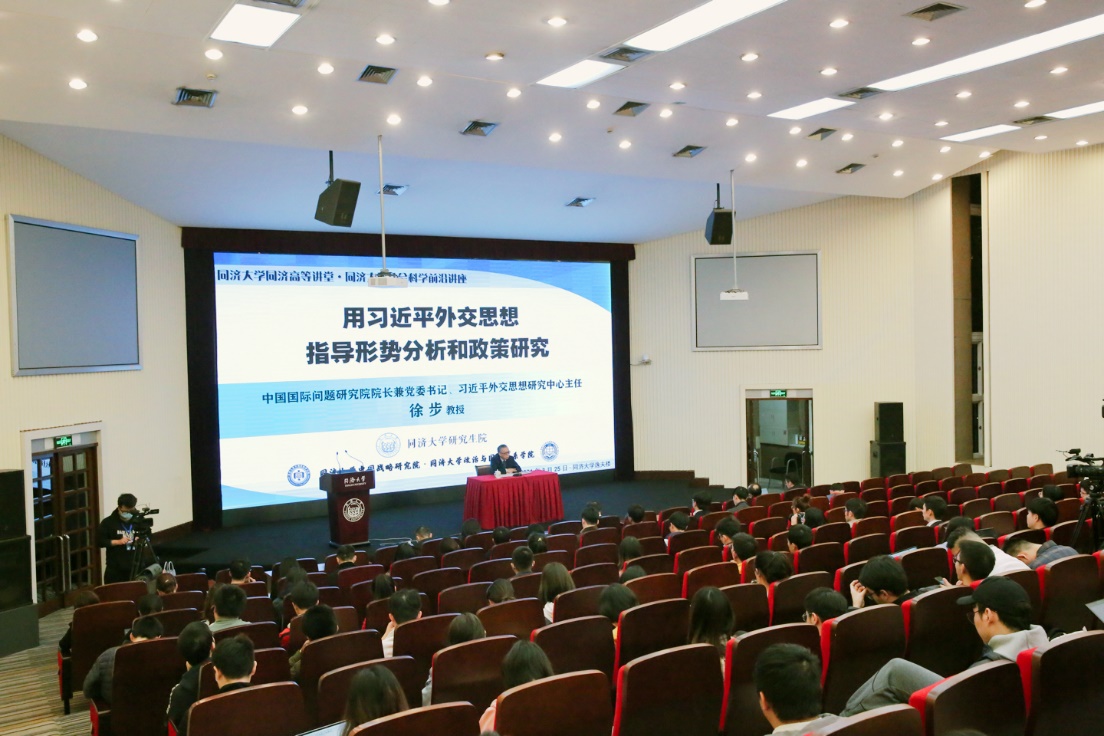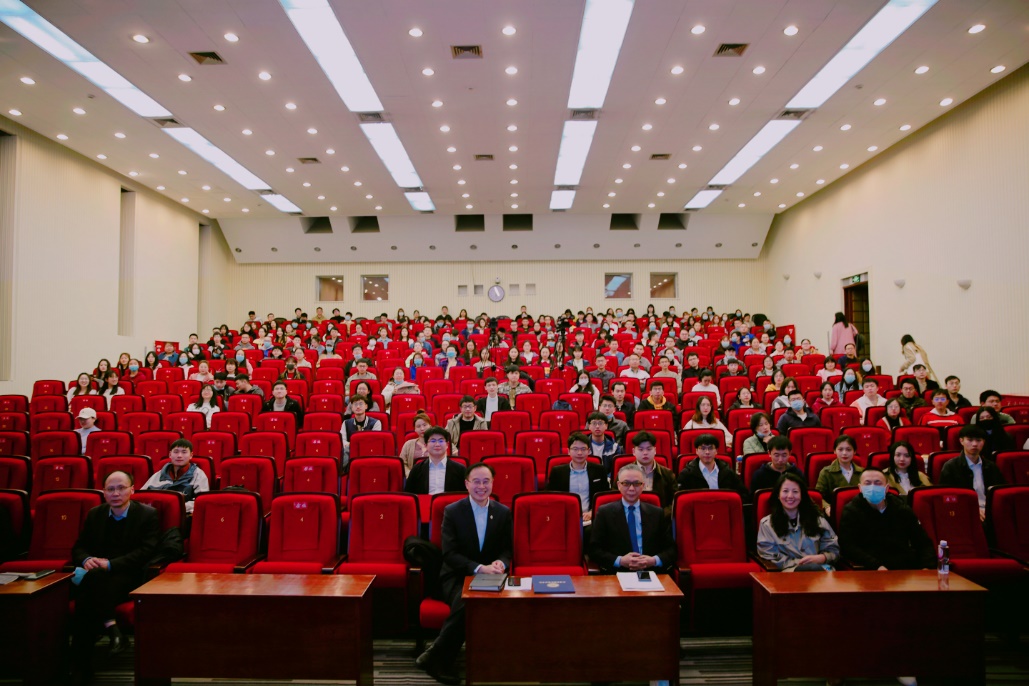News



Hosted by the Institute for China & World Studies and the School of Political Science & International Relations (SPSIR), Tongji University, the Tongji Advanced Lectures for Graduate Students No.77 & the Tongji Serial Lectures on Social Sciences No.32 was successfully held in the Conference Hall of Yifu Building on March 25, 2021. Ambassador Xu Bu, Secretary of the Party Committee and President of the China Institute of International Studies (CIIS), Director of the Xi Jinping Thought on Diplomacy Research Center, and an adjunct professor at Tongji University, was specially invited to give a lecture on the topic of “Situation Analysis and Policy Study under the Guidance of the Xi Jinping Thought”. The lecture was moderated by Tongji Distinguished Professor Men Honghua, President of the Institute for China & World Studies and Dean of SPSIR.

First of all, President Xu elaborated on the scientific system, theoretical connotation and core principles of the Xi Jinping Thought on Diplomacy from the following ten aspects. 1. Uphold the centralized and unified leadership of the Party Central Committee over foreign affairs and diplomacy; 2. Advance major-country diplomacy with Chinese characteristics in pursuit of the great rejuvenation of the Chinese nation; 3. Build a global community of shared future with the purpose of maintaining world peace and promoting common development; 4. Increase strategic self-confidence by taking socialism with Chinese characteristics as the fundamental principle; 5. Advance the Belt and Road Initiative by adhering to the principle of “extensive consultation, joint contribution and shared benefits”; 6. Pursue peaceful development based on mutual respect and win-win cooperation; 7. Build global partnerships with the support of improved diplomacy; 8. Lead the reform of the global governance system based on the concept of fairness and justice; 9. Safeguard state sovereignty, security and development interests by sticking to the bottom line of China’s core interests; 10. Build China’s unique diplomatic style by integrating the fine traditions in foreign affairs with the characteristics of the times.

President Xu gave his understanding of the current international situation in combination with the Xi Jinping Thought on Diplomacy. He started from the different mentalities of China and the US reflected in their strategic dialogue on March 18-19. China has changed its attitude from looking up to the West to looking at it horizontally. By contrast, the US has lots of anxiety about China. How to understand China-US strategic competition and whether it will evolve into strategic confrontation or conflict will have a significant impact on China. In particular, when the world today is undergoing profound changes unseen in a century, and the Chinese nation has entered a critical period of great rejuvenation, we must figure out how to coordinate the overall strategy of national rejuvenation amid such profound changes, and how to balance our domestic and international interests. In this regard, a profound understanding of the Xi Jinping Thought on Socialism with Chinese Characteristics for a New Era and the Xi Jinping Thought on Diplomacy is of great significance to our situation monitoring, problem studies and trend analysis. We can only keep track of the times and identify China’s development direction by understanding its major policies and how the Party Central Committee strategizes and leads the journey towards national rejuvenation.
In the lecture, President Xu focused on the importance of the Xi Jinping Thought on Diplomacy, which is mainly manifested in three aspects: First, it embodies the core concept of the socialism with Chinese characteristics in the new era; Second, it is the most typical achievement of Marxism in Chinese diplomacy in the 21st century; Third, it is an incarnation, inheritance and innovation of China’s excellent traditional culture. President Xu further pointed out that studying the Xi Jinping Thought on Diplomacy is not for the sake of study, but the purpose is to solve practical problems. Therefore, we should have a correct view of history, overall situation and role, and take into account China-world interaction during the international studies. Specifically, the view of history means when judging the current situation, we should not only pay attention to the present, but also look back into the past. The view of overall situation emphasizes the necessity of grasping the nature, the overall situation, and the trend of world development. Aside from stepping up trade cooperation, China should also advocate mutual respect, fairness and justice, peaceful development, and building a community, to claim the moral high ground and conform to the development trend of the times. The view of role means when looking at the international situation and analyzing problems, China should figure out its own problems and advantages, as well as its position and role in the evolution of the world pattern.

President Xu shared his profound understanding of the theoretical connotation and core principles of the Xi Jinping Thought on Diplomacy for the audience from the three dimensions of theory, history and reality, along with the development of China-US relations and his own diplomatic experience. In the Q&A session, he answered questions such as “China’s own development and its responsibilities as a major country” and “the space for future BRI cooperation between China and South American countries”. His insightful answers won him rounds of applause.

Dean Men thanked President Xu for giving such a wonderful lecture on ideology and diplomacy to the teachers and students of Tongji in the run-up to the celebration of the 100th anniversary of the founding of the CPC. As he pointed out, when China’s development goes hand in hand with global transformation, China is entering an era of diplomatic innovation. We are able to see clear the situation, set goals and enhance confidence, thanks to President Xu’s detailed explanation of the connotation, purpose and influence of the Xi Jinping Thought on Diplomacy, along with his analysis of China’s diplomatic practices under the guidance of the Xi Jinping Thought on Diplomacy and his deep understanding of the international situation and China-US relations based on his career as a seasoned diplomat.